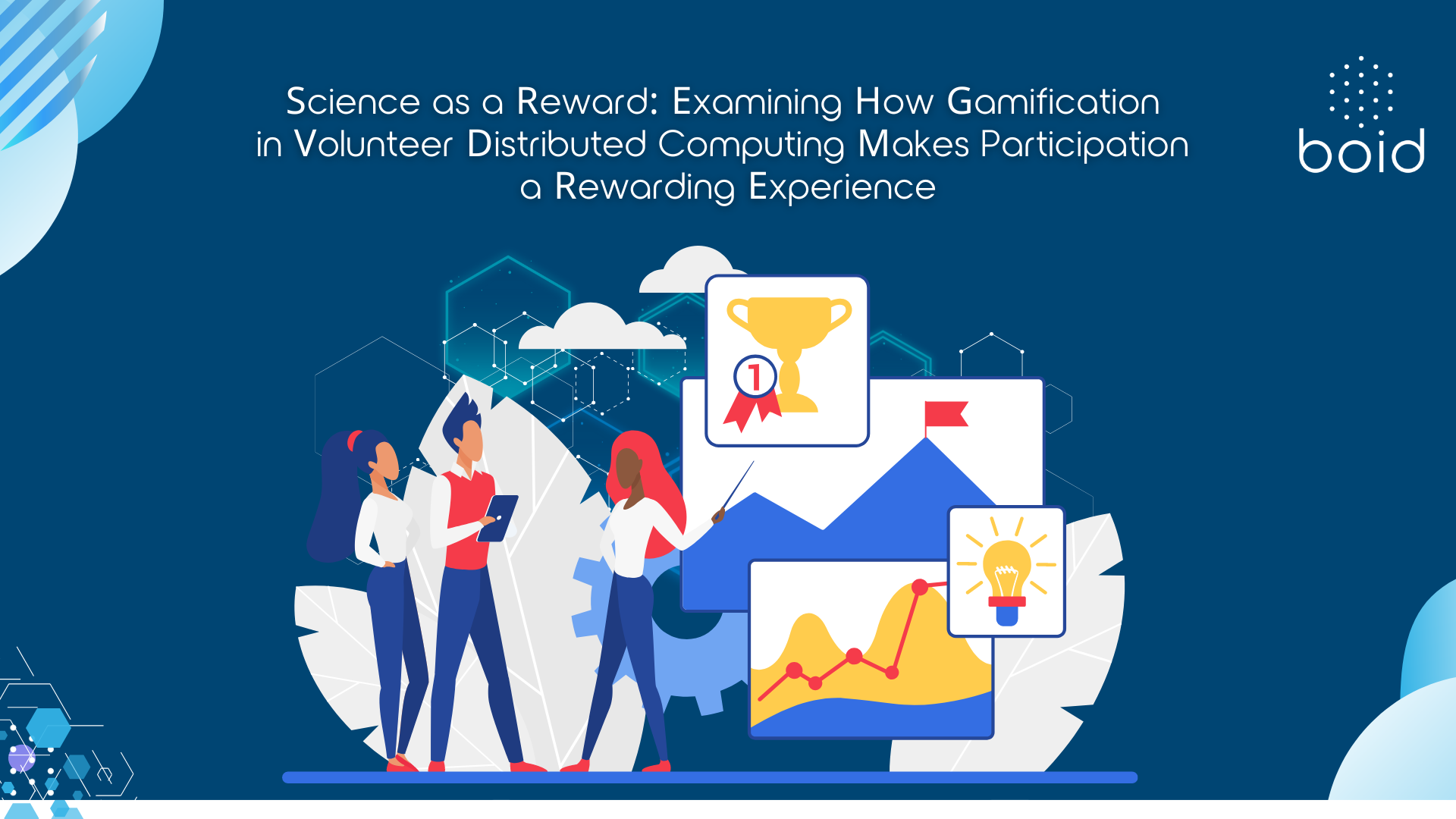Science as a Reward: Examining How Gamification in Volunteer Distributed Computing Makes Participation a Rewarding Experience

In the digital age, gamification has become a powerful tool to motivate and engage people in various activities. One field where gamification has proven effective is in volunteer distributed computing. In this article, we will explore how gamification in volunteer distributed computing can turn participation into a rewarding experience by highlighting science as a reward. We will discover how participants can feel rewarded by knowing that they are contributing to important scientific projects and helping advance research.
Scientific Contribution as Motivation:
One of the most rewarding aspects of gamification in volunteer distributed computing is the opportunity to contribute to high-impact scientific projects. Participants can feel motivated and rewarded by knowing that they are donating their computing power to help solve complex problems in fields such as biology, medicine, astrophysics, and more. This direct contribution to science creates a sense of purpose and achievement as volunteers become key players in scientific research.
Advancing Research and Discovery:
Gamification in distributed computing not only offers personal rewards but also drives advancement in scientific research. By harnessing the collective processing power of thousands of volunteers, scientific projects can expedite data analysis, conduct simulations, and tackle computationally intensive problems more efficiently. Volunteer participation not only streamlines the research process but also expands the scope of projects, enabling the addressing of broader and more complex questions.
Gamification Elements Highlighting Scientific Contribution:
To make participation in distributed computing even more rewarding, projects have implemented gamification elements that highlight volunteers' scientific contribution. For instance, virtual badges or medals can be awarded to recognize participants' achievements and milestones. These unlockable achievements not only reinforce the sense of progression and personal accomplishment but also symbolize the scientific impact of their contributions.
Furthermore, effective communication and transparency in distributed computing projects are crucial to keeping volunteers engaged. Providing regular updates on progress, discoveries, and research outcomes allows participants to feel connected and valued, further reinforcing their motivation and sense of reward.
Community and Collaboration as Additional Rewards:
Gamification in distributed computing also fosters the formation of a collaborative community among participants. By working together on scientific projects, volunteers can exchange knowledge, share experiences, and build meaningful relationships. This collaboration not only provides an additional social reward but also amplifies the scientific impact by harnessing the collective power of the community.
Gamification in volunteer distributed computing has the power to turn participation into a rewarding experience by highlighting science as a reward. By contributing to important scientific projects, participants experience a sense of purpose and personal achievement. Additionally, gamification highlights the scientific impact of their contributions by granting virtual recognition and unlocking achievements that symbolize their involvement in advancing research. By combining the excitement of gamification with the significance of science, distributed computing becomes a rewarding experience in itself, driving scientific discovery and strengthening the community of dedicated volunteers.
Join the exciting adventure of volunteer distributed computing and discover how your participation can make a significant impact in science and research.

